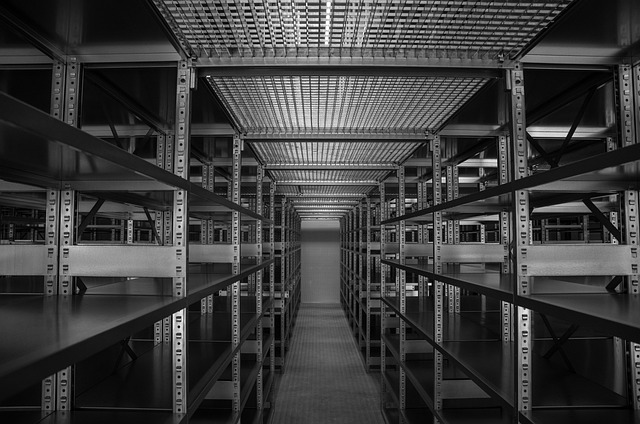In this post, I’ll answer the question – what is warehouse management system?
The warehouse management system is a software solution that helps you manage inventory and fulfill orders quickly, easily, and accurately.
Whether you are a large chain of retail stores or an online retailer with thousands of products, having the right WMS will help you with the following details:
- Know where your products are at any given time so that you can fulfill customer orders quickly and accurately.
- Keep track of your inventory so that you never run out of best-selling items.
- Reduce labor costs by automating picking, packing, and shipping processes.
READ ALSO: Craigslist Scams: Examples And How Not To Fall For Them
Table of Contents
What Is a Warehouse Management System?
Warehouse management is a vital component of the operations of any company, large or small.
Warehouse management can be standalone software or part of an enterprise resource planning (ERP) system that works with other modules that are integrated into the company’s system, such as order management, customer relationship management (CRM), inventory management, MRP, accounting, and more using one central system and data source.
Warehouse management allows for efficient storage and retrieval of goods and materials. Warehouse management provides companies with the tools they need to track stock levels and orders so they can make the right amount of goods available to the customers at the right time.
Enterprise resource planning (ERP) software systems integrate all aspects of your company’s operations, including accounting, order management, inventory management, manufacturing resource planning (MRP), customer relationship management (CRM), and more.
An ERP system is usually implemented as a single centralized system that houses all your data in a single drive so everyone can easily access it. This system allows you to use one set of tools to manage everything from orders to invoices and even customer service issues.
ERP systems are designed for businesses with large amounts of data that require more complex functionality than standalone warehouse management providers. They’re often less expensive than buying multiple pieces of software because they’re bundled together in one package.
Your warehouse is the heart of your company. It’s where your products are stored and sorted and the place from where they’re shipped out to customers. It can be a disaster if you do not have a system in place to manage your warehouse.
Warehouse management helps you to keep track of what is coming into and out of the warehouse, so you don’t run out of inventory and have to start scrambling at the last minute.
READ ALSO: Managing Open-Source Vulnerabilities Like A Pro!
It also makes you stay on top of what is needed and when, so shipments can go out on time without delay or confusion. Due to how simple it was for them, your clients will appreciate not having to wait long for their products and are likely to return.
Warehouse management is important for any organization, large or small, that needs to track and organize its inventory. Whether you own a small family business or a major corporation, warehouse management can help keep your inventory in order, increase productivity, and save time.
READ ALSO: Can VPNs Help Prevent Cyberattacks? [We Have The Answer]
How can a WMS benefit my business?
There are many potential benefits to implementing a WMS. Here are a few key ones:
- Improved accuracy and efficiency: A WMS reduces errors in inventory management and order fulfillment, leading to faster order processing and happier customers.
- Reduced costs: By optimizing processes and minimizing waste, a WMS can help you save money on labor, storage space, and shipping.
- Enhanced visibility and control: A WMS provides real-time data on your inventory levels, making it easier to track stock and make informed decisions.
Warehouse Management System: FAQs
Warehouse Management Systems (WMS) are software solutions that streamline and optimize warehouse operations. But if you’re considering a WMS, you might have some questions. Here are five frequently asked ones:
What is a Warehouse Management System (WMS)?
A WMS is a software program that helps businesses manage and control everything that happens within their warehouse. It tracks inventory, automates tasks, and optimizes processes like receiving, putaway, picking, packing, and shipping.
Is a WMS right for my business?
A WMS can be beneficial for businesses of all sizes, but it’s especially helpful for companies with complex inventory or high order volumes. If you’re struggling with warehouse inefficiency or inaccurate inventory, a WMS could be a good solution.
READ ALSO: How To Keep Track Of Your Income In Smart Ways
What are the different types of WMS?
There are several types of WMS available, including cloud-based, on-premise, and standalone systems. The best option for your business will depend on your specific needs and budget.
How much does a WMS cost?
The cost of a WMS can vary depending on the features you need, the size of your business, and the deployment model (cloud-based vs. on-premise). It’s important to research different vendors and get quotes to find a system that fits your budget.
READ ALSO: How To Make Your Thrift Store A Success
Conclusion
In this day and age of retail, organizations must be able to track their inventory to stay on top of demand.
Warehouse management systems allow you to keep track of all items that pass through your warehouse by scanning them in as they come in and out of your warehouse.
This allows you to see exactly how much of each product you have at any given time and what needs replenishing.
INTERESTING POSTS
- 5 Features Of A Good Manufacturing Company
- The Real Impact of Cloud-Based Integration Solutions on Businesses Today
- DDoS Attacks On Metaverses: What Is The Threat?
- How Will The Right CRM System Improve Your Business Today?
- Exclusive Interview With David Monnier, Chief Evangelist Of Team Cymru
- 5 Reasons Why You Should Go Cashless Now
- 20 Best Cybersecurity Business Ideas For Entrepreneurs
About the Author:
Mikkelsen Holm is an M.Sc. Cybersecurity graduate with over six years of experience in writing cybersecurity news, reviews, and tutorials. He is passionate about helping individuals and organizations protect their digital assets, and is a regular contributor to various cybersecurity publications. He is an advocate for the adoption of best practices in the field of cybersecurity and has a deep understanding of the industry.








